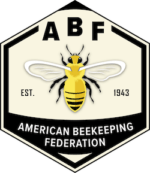Bees are most active between spring and fall. Summer is prime time for bees’ favorite activities – including colonizing and establishing new hives. Contrary to some peoples’ beliefs, bees’ favorite activities do not include terrorizing humans. In truth, most bees are not harmful unless you disturb them. It is still important to know some basic bee safety tips.
For example, if you happen upon a swarm of bees, they are simply on the lookout for a new place to colonize and won’t want to bother you, or be bothered themselves! Most of the time, if you wait it out, they will move on.
What do I do if I find a hive of bees in my yard?
Unexpectedly finding a hive of bees, on the other hand, can be dangerous. If the hive is uncovered when performing yard work with loud machines, say yielding a leaf blower, or on a ride-on mower, the sound and activity could upset the hive. If you find a hive on your property or in an area that many people come upon, it is best to perform a live honey bee removal, so the bees don’t get agitated from activity in the area. Honey bee hive removal is a job best left to the professionals who have the right safety protective gear and knowledge. The last thing you want to do it upset a hive of bees by spraying them madly and running. Not only will you anger the colony, but it also won’t kill the hive because most likely the queen will not be disturbed.
How do I know if the bees are Africanized honey bees?
There is also a chance that you might have come across africanized honey bees. How do you know if they are africanized honey bees (aka Killer bees)? You won’t be able to tell just by looking, there are some slight differences, but in the heat of the moment, you don’t want to stick around to determine. You must observe their personality. Africanized honey bees are more aggressive in general. They attack in more significant numbers and stay angry and aggressive for up to an hour. Africanized honey bees venom is stronger, and they can make a nest in just about anything and anywhere.
How do you stay safe around bees in the summer?
- If you came across a hive of bees unexpectedly. Do not make a scene, move away quietly and slowly until the bees are no longer in sight.
- If you have accidentally already disturbed the bees, run as fast as you can in a straight line and find shelter. The furthest even Africanized bees will chase you is a quarter of a mile.
- If for some reason you can’t run, cover your face and eyes from the bees with your arms or shirt. Try to remain calm and do not flail and swat and scream. This just makes the bees madder!
- Do not attempt to jump in the water to avoid the bees. They will be waiting for you to get a breath of air!
What do you do if you are stung by bees?
When a bee stings, it leaves it stinger. You want to remove the stinger as fast as possible. Scape it out and wash the area with soap and water. Later you can apply a cold compress to the area. If you have trouble breathing, become dizzy or even nauseous, you might be having an allergic reaction to the sting. Call 911 as soon as possible. The good news is that most of the population is not allergic to bees. On average, only a very small percent of the population is allergic to bees. But for those who are, it can be deadly. If you are out and about this summer in nature where bees might be, avoid heavy scents like found in florid soaps and body lotions. Don’t wear bright colors or florals that might look like lunch for a bee. Try not to leave sweet stuff uncovered at a picnic or leave sticky garbage out without a lid.
Bees do not want to harm you. But they also do not like being disturbed. If you do find a hive, contact Little Giant Beekeepers and we can help you decide the next steps free of charge. Call 972-316-9135 for a free consultation.
IMAGE CREDIT: Photo by Juan Salamanca from Pexels








